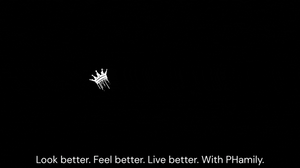
The New York Times Book Review posted an article last week about “Why Do Kids’ Books About Black Hair Draw So Much Attention—and Controversy?’ Natasha Tarpley, the author of the piece, waxes quite poetically about the magical moments spent with her mother doing her hair.
“First, the banishment of annoying siblings to another part of the house. Then, the gathering of materials: a turquoise wide-tooth comb and brush set, an assortment of candy-colored barrettes, and the jar of blue Ultra Sheen hair grease, a small cup of solidified ocean that bore the swirling imprint, like fossilized waves, of dipping fingers. Finally, there were the stories.”
I don’t know about you, but when I think back on getting my hair done as a child, it involved sitting next to the stove with a jelly jar lid over my ear, flinching as my mother would come at me over and over with a hot comb, and listening to the sizzle of Blue Magic on my scalp. The same reason that my mother insisted on pressing my hair and that I willingly submitted to it, despite burns on my head, neck, and ears, is the same reason those children’s books celebrating natural hair are so important—in the 1980s, when I was growing up, my hair as it grew out of my head was not considered acceptable.
I don’t blame my mother for pressing my hair. My mom did the best she knew to do at the time. She was protecting me from ridicule. She was ensuring that white teachers didn’t send notes home about my hair being unkempt. She did what her mother had done.
While some black mothers today still straighten their daughters’ hair, watching Kim Kardashian get dragged online after posting pictures of her daughter North West with straightened hair seems to indicate that culturally we have lost the stomach for it. Many mothers nowadays are handing down a new legacy of self-acceptance and teaching their daughters to embrace their natural hair. Shanillia26 has been wowing her 278,000 followers on Instagram with the amazing natural hairdos she models on her two gorgeous daughters, Shanillia and Janelle.
It has never before been easier for mothers to help their children embrace their natural curls. Companies, like the McClendon Company, a black-owned, family run business headed by Emery McClendon, the creator of Photogenic Hair Care, are creating products that allow mothers and their future queens to love their curls from the earliest age. Photogenic is an all-in-one hair care product that provides beautifully defined curls on curly and kinky hair types and replaces the need for any additional leave-in conditioner, oil, styling gel, or refresher spray. This one-step hair solution is safe, gentle, and effective and can be used on all ages. Every parent hopes that the world will be better for their children. As we move forward in history, the future queens of tomorrow may all have beautiful and peaceful memories like Natasha Tarpley has thanks to the natural hair revolution, books and media that celebrate us just the way we are, and amazing products like Photogenic.











